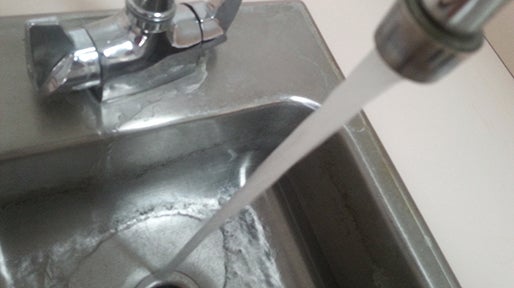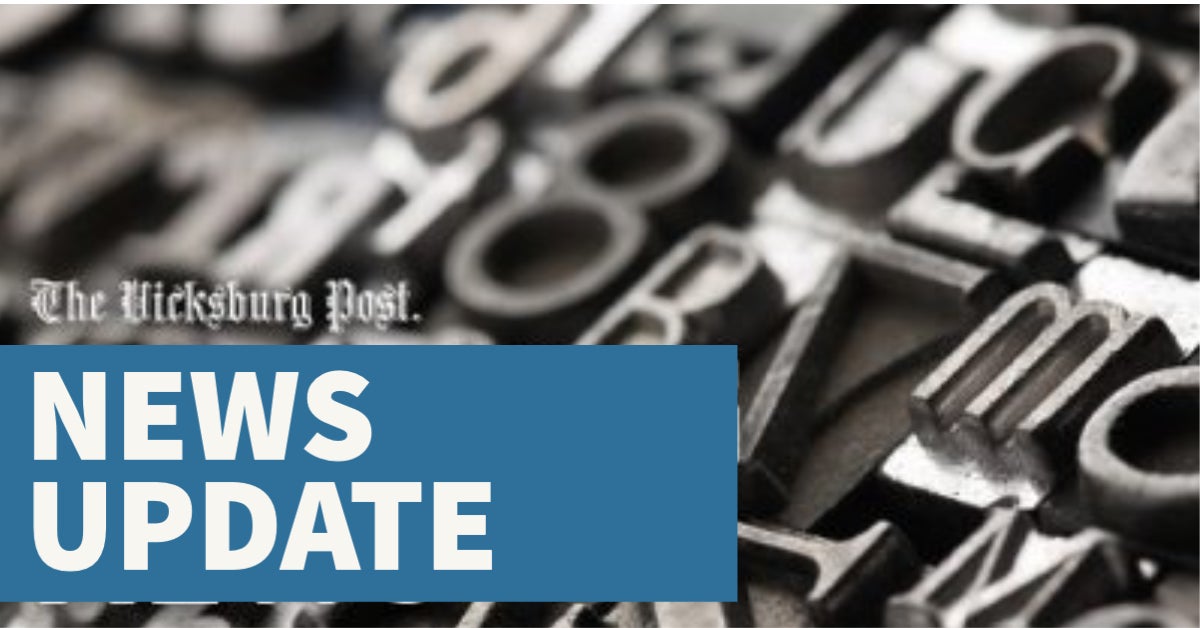Rate increase begins for Vicksburg water and sewer customers
Published 7:00 pm Saturday, September 29, 2018

- Customers who receive water and sewer service from the city of Vicksburg will see an increase in user fees when new rates take effect beginning Monday. The rate increase was announced in April by Mayor George Flaggs Jr. (Rob Sigler/The Vicksburg Post)
The cost of service for customers on Vicksburg’s water and sewer systems goes up Monday.
That’s when the new water and sewer user fees approved in June by the Board of Mayor and Aldermen go into effect.
The new rates were recommended by a 10-member committee appointed by Mayor George Flaggs Jr. to examine the city’s rate structure. Flaggs announced the increased rate at a town hall meeting in April.
The rate increase will be spread out over two years. When the board set the new rates, Flaggs said city officials “tried to be mindful of the elderly and people on fixed incomes.”
Flaggs said the city has a new computer program for billing that is ready to go, adding the city has run notices in the paper reminding people of the rate changes.
“It’s necessary,” he said of the increase. “It’s necessary for us to do that, especially at a time when we’re trying to resolve that (Environmental Protection Agency) consent decree. We can’t stop now; we’ve got to keep moving forward with what we’re doing.
“I think everything we’ve done is what has been required for us to do, and we need to keep going. Fees are the only means for us to fund. You cannot use general funds for utilities.
“It’s a fee for service; we’ve got no other choice. It’s unfortunate, but we don’t have any other choice,” Flaggs continued.
“This the cost of providing quality service, and we’re not unusual, most of the cities are facing the same dilemma.”
Based on usage
City water and sewer bills are based on use. Previously, residents paid a minimum of $8.75 for the first 2,000 gallons used and $3.22 per 1,000 gallons for the next 8,000 gallons used. A sliding scale is used to determine the cost per gallon for use more then 8,000 gallons.
With the new rate structure, the minimum rate a customer will pay is set on a sliding scale based on the size of the water meter and water use. Under the ordinance approved in June, each increase will be phased in, with half levied in October and the other half in Oct. 2019.
The least a residential customer will pay under the new schedule is $10.06 for the first 2,000 gallons, an increase of $1.31 more than the $8.75 minimum rate users have paid since the rates were last raised in 2015. Commercial and industrial users would pay a minimum of $41.18 for the first 4,000 gallons used, a $5.37 increase from the present rate of $35.81.
The minimum residential sewer rate was increased by $3.20, from $12.90 to $16.10 for the first 2,000 gallons, and from $3.96 to $4.96 per 1,000 gallons for the second 2,000 gallons — a $1 increase.
The new minimum commercial rate is $43.31 for the first 2,000 gallons, an increase of $15.06 over the present rate of $28.25, and $4.96 per 1,000 gallons for the second 2,000, an increase of $1 over the present $3.96. The industrial sewer rate is unchanged at $446 for the first 200,000 gallons.
Need for repairs
When he discussed the rate increase in June, Flaggs said the city cannot use money from its general fund budget to make repairs to the utilities systems under state law, nor can it use the capital improvements bond money, and cannot use revenue from the 2 percent special sales tax on food and beverages sold at restaurants and hotel rooms, because those funds are committed to other city projects.
Flaggs on several occasions since January has indicated the city needed to increase water and sewer rates, pointing out the city’s utilities infrastructure is more than 100 years old, and over the last five years “is costing us more to provide water and sewer than we collect.”
The city in 2013 during the administration of former Mayor Paul Winfield signed a consent decree with the EPA after an EPA study indicated raw sewage was allowed to run into area streams and the Mississippi River. Under the decree, the city paid a $17,000 fine and agreed to have its sewer collection system assessed, mapped and damaged areas replaced and repaired over a 10-year period.
The city has applied to the Mississippi Department of Environmental Quality for a low-interest $27.76 million water pollution control revolving fund loan to cover the cost of upgrading Vicksburg’s 110-year-old system.
The city is also seeking money for matching funds to install an auxiliary waterline. The estimated $5 million project is being paid in part by a $2.45 million U.S. Army Corps of Engineers 592 grant.






